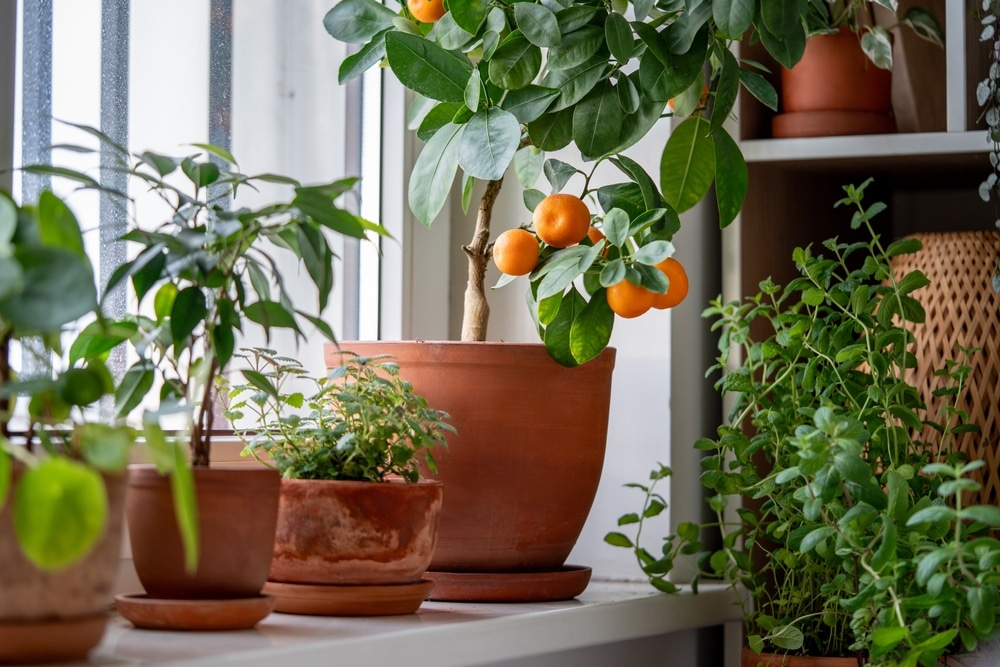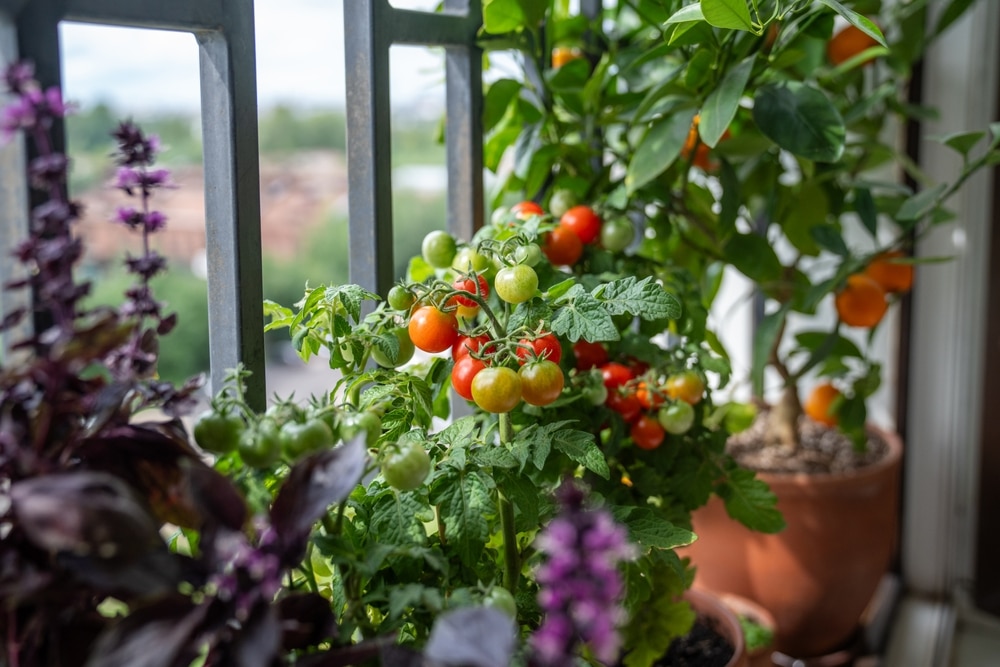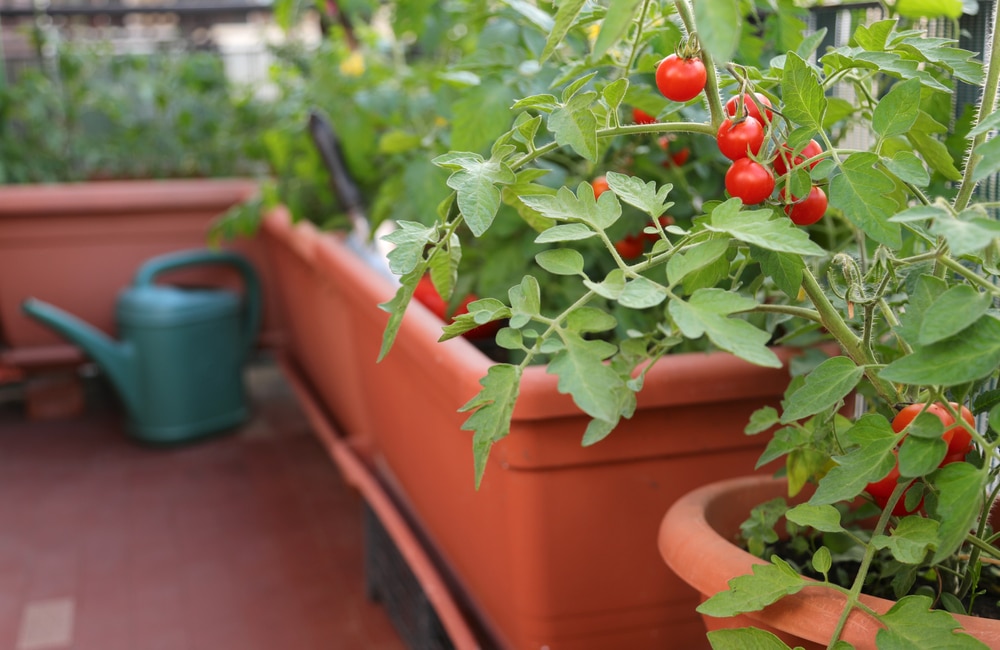Table of Contents
Thinking of owning a very cool fruitful tropical place? OH, don’t worry, you won’t have to travel to the HAWAII for that. Rather, you can just grow fruits inside your very own apartment. A satisfying method to enjoy fresh fruits all year long is by growing fruit inside. Citrus trees, dwarf fruit trees, and even unusual plants like dragon fruit can be grown in your home with the correct arrangement. Fruit can be grown inside with minimum care, but it needs attention to light, temperature, and humidity to thrive. Let us find explore why we would grow fruits in our very own apartment!
Why Grow Fruit Indoors?
Before you grow fruits inside your home space, you must understand all the know-how and reasons why you plan to do that. Growing fruit inside provides fresh product, year-round convenience, and a visual enhancement to any house. You can regulate essential elements like humidity, natural light, and temperature while growing fruit inside, which promotes plant growth. With proper care, many fruit trees that grow indoors, such as Meyer lemons, limes, and even dwarf apple or dragon fruit kinds, can produce fruit. These indoor fruiting plants thrive when grow lights are used, potting soil has adequate drainage holes, and they receive 12 hours of sunshine.
- Add beauty and greenery to indoor spaces with fruiting trees like olive or brown turkey fig.
- Enjoy fresh fruit on demand with easy-to-grow varieties like citrus plants and dwarf fruit trees.
- Grow fruit indoors with optimal care using grow lights, potting soil, and proper watering.

Best Fruits to Grow Indoors
While not all fruits thrive indoors, there are several excellent options;
- Meyer Lemon Trees: Compact and fragrant, these trees are popular for indoor growing. They require ample sunlight and regular watering.
- Lime Trees: Like lemons, lime trees are suitable for indoor growth and can produce fruit if given proper care.
- Dragon Fruit: While unconventional, dragon fruit can be grown indoors with the right setup. It requires a lot of light and a sturdy support system for its climbing growth.
- Brown Turkey Fig: This variety of fig tree is compact and can produce fruit indoors, given enough light.
- Olive Trees: Small olive trees can adapt well to indoor environments, especially in dwarf varieties.

Essential Fruit Growing Conditions
To ensure that your indoor fruit trees thrive, consider the following conditions;
Light Requirements
Most fruit trees require 10-12 hours of natural light per day.
- Place them near south-facing windows or use grow lights to supplement natural light.
- Grow lights are essential if your home doesn’t get enough sunlight.
- LED grow lights work well for indoor fruit trees as they provide the needed spectrum for photosynthesis.
Temperature and Humidity
The next thing for growing fruits inside is the temperature.
- Indoor fruit bearing trees generally prefer temperatures between 65°F and 75°F during the day and slightly cooler at night.
- Humidity can be increased by misting the plants or placing a humidity tray nearby.
Potting Soil and Drainage
Use well-draining potting soil specifically designed for indoor plants.
- Regular garden soil can compact, limiting root growth and water drainage.
- Ensure pots have drainage holes to prevent waterlogging, which can harm the roots.
Maintaining Indoor Fruit Trees
To keep your fruit trees healthy and productive in your apartment gardening process;
- Fertilize: Use a balanced, slow-release fertilizer during the growing season.
- Prune: Pruning encourages new growth and helps shape the tree. Remove dead or crowded branches to allow more light and air.
- Watch for Pests: Indoor plants can attract pests like spider mites and aphids. Use insecticidal soap or neem oil as needed.

Final Thoughts
Summing up, with the correct equipment, growing fruit indoors may be a rewarding experience. Select dwarf cultivars, use potting soil that drains well, and make sure they receive 12 hours of natural or grow light.
In conclusion, with the right care, common indoor plants like dragon fruit, olive trees, Meyer lemons, and limes can flourish. All year long, you can savor fresh, home-grown fruit if you have a few prerequisites.
ENJOY THE FRUITS OF YOUR HARDWORK!
